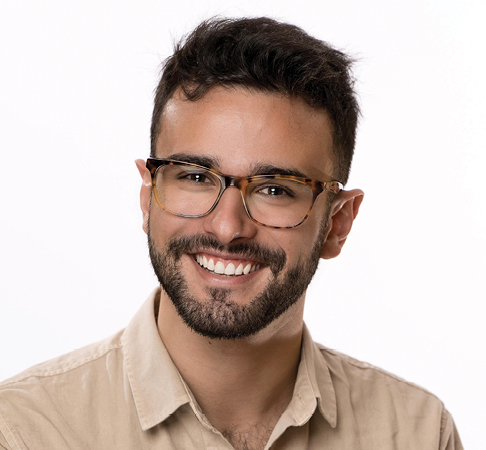Walking the Talk for Dementia
Forming an international movement and sharing a transformative journey through the Camino de Santiago trail, expanding awareness and empathy for those living with dementia.

The Spark
Historically, people living with dementia have been separated from the research and clinical fields that aim to help them.
As professionals, policymakers, and academics in the field continue investigating and sharing insights into the complex brain condition that is dementia, the patients are a key stakeholder group that is often sidelined. Dementia has a significant impact that goes beyond the patient, affecting their families and communities too. It has never been more crucial to include all those affected in the conversation on dementia. With the support of an Atlantic Institute Scale Grant, Fernando Aguzzoli Peres and his colleagues from five Atlantic Fellows programs initiated an opportunity for collaboration and dialogue across the field with their project “Walking the Talk for Dementia,” which focused on bridging the gap between patients and practice.

With the pilgrimage walk, El Camino de Santiago, as its backdrop, "Walking the Talk for Dementia" was a shared physical and emotional journey centered on connection.
Dementia is commonly viewed as a disease that isolates those impacted but the condition should not define the stories of those affected. This was the ethos that guided the project “Walking the Talk for Dementia” as the Fellows brought together dozens of individuals living with dementia alongside caregivers, researchers and loved ones. They were united by their common goal to tackle dementia and common misconceptions about the condition and trekked one of Europe’s most famous pilgrimage routes in an act of solidarity.. Participants shared their lived experiences, different realms of knowledge and grace with one another, deepening their own understanding of dementia. The walk also underscored the immeasurable impact of human empathy.
Following the walk, the experience culminated in a symposium to highlight the diverse narratives of those who had taken part. Seventy individuals shared the story of dementia as they experienced it, emphasizing how the walk itself had provided new insights that led them to revise some of the presentations written before the journey. The symposium provided participants with a space for mutual discovery, learning, and reflection. The walk itself attracted the attention of national news outlets and international organizations, with a filmmaker capturing the walk in real time. Such coverage serves to invigorate the global conversation about dementia, empowering those impacted to share their story.
“Walking the Talk for Dementia” has continued to connect and bridge conversations beyond Santiago in Spain to countries as far apart as Singapore and the Netherlands. The relationships forged during the walk continue to grow, resulting in further gatherings and collaborations among the participants. Following the success of the project in 2023, Fernando and his colleagues held a similar “Walk the Talk for Dementia” event in 2024.
%20Large.avif)
The Initiatives
The Walk brought together over 70 participants from 25 nationalities and walks of life to raise awareness of dementia.
The impact of “Walking the Talk for Dementia”:
- The Fellows developed a network of people from around the world who share experiences and stories about dementia and are committed to addressing dementia and common misconceptions about the condition. They have set up an online platform that they can use to connect and collaborate.
- The Fellows created a documentary, “Five to Midnight,” premiering in film festivals to spread awareness and understanding of those living with dementia.
- The Fellows published their findings in “Alzheimer’s & Dementia: The Journal of the Alzheimer’s Association,” a leading peer-reviewed medical journal.
- “Walk the Talk for Dementia” received international recognition and attention, with news coverage of the event in three continents and in at least four languages.
- The Walk has helped change public perceptions of dementia and further empowered those living with dementia to advocate for themselves.

The Scale
The Future
Fernando is now using the Scale Grant to explore ways of staging a similar event in the Global South. Future projects will center around the social definitions of dementia and contextual shifts that are made in advocacy and care based on geographical location.
Media Mentions
The Initiative is working on releasing the Holistic Safety Education course and offering training on using HoSAI as a tool to improve the safety of girls and frontline defenders working with them.












